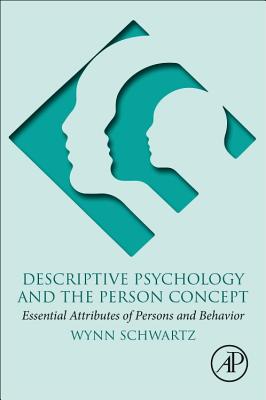Descriptive Psychology and the Person Concept: Essential Attributes of Persons and Behavior
暫譯: 描述心理學與個體概念:個體與行為的基本特徵
Schwartz, Wynn
- 出版商: Academic Press
- 出版日期: 2019-06-18
- 售價: $5,210
- 貴賓價: 9.5 折 $4,949
- 語言: 英文
- 頁數: 281
- 裝訂: Quality Paper - also called trade paper
- ISBN: 0128139854
- ISBN-13: 9780128139851
海外代購書籍(需單獨結帳)
商品描述
Descriptive Psychology and the Person Concept maps the common ground of behavioral science. The absence of a shared foundation has given us fragmentation, a siloed state of psychological theory and practice. And the science? The integrity of choice, accountability, reason, and intention are necessary commitments at the cornerstone of civilization and any person-centered psychotherapy, but when taught along with a "scientific" requirement for reductionism and determinism, reside in contradictory intellectual universes. Peter Ossorio developed the Person Concept to remedy these problems. This book is an introduction to his work and the community of scientists, scholars, and practitioners of Descriptive Psychology.
Ossorio offered these maxims that capture the discipline's spirit: 1. The world makes sense, and so do people. They make sense to begin with. 2. It's one world. Everything fits together. Everything is related to everything else. 3. Things are what they are and not something else instead. 4. Don't count on the world being simpler than it has to be.
The Person Concept is a single, coherent concept of interdependent component concepts: Individual Persons; Behavior as Intentional Action; Language and Verbal Behavior; Community and Culture; and World and Reality.
Descriptive Psychology uses preempirical, theory-neutral formulations and methods, to make explicit the implicit structure of the behavioral sciences. The goal is a framework with a place for what is already known with room for what is yet to be found.
- Provides a way to compare theories, coordinate empirical findings, and negotiate competent disagreement
- Offers guidance for effective case formulation and integration of therapies
- Explores the dilemmas of personhood and the complexities of human and nonhuman action, investigating "what is a person, and how can we be sure?"
- Follows the implications of Hedonics, Prudence, Ethics, and Aesthetics as intrinsic perspectives and reasons for action
- Applies these concepts to personality and social dynamics, consciousness, relationship change, emotional behavior, deliberation, and judgment
- Provides a guide to establishing and restoring empathy--especially when it's difficult
商品描述(中文翻譯)
《描述心理學與個人概念》描繪了行為科學的共同基礎。缺乏共享的基礎使我們面臨碎片化的狀態,心理理論與實踐變得孤立。而科學呢?選擇、責任、理性和意圖的完整性是文明的基石以及任何以人為中心的心理治療所必需的承諾,但當這些概念與對還原主義和決定論的“科學”要求一起教授時,卻存在於矛盾的智識宇宙中。彼得·奧索里奧(Peter Ossorio)發展了個人概念以解決這些問題。本書是對他工作的介紹,以及描述心理學的科學家、學者和實踐者社群的介紹。
奧索里奧提出了幾條格言,捕捉了這一學科的精神:1. 世界是有意義的,人也是如此。他們一開始就有意義。2. 這是一個世界。一切都是相互關聯的。3. 事物就是它們所是的,而不是其他東西。4. 不要指望世界比它必須的更簡單。
個人概念是一個單一的、連貫的相互依賴的組成概念:個體;行為作為有意圖的行動;語言和口頭行為;社區和文化;以及世界和現實。
描述心理學使用前經驗的、理論中立的表述和方法,以明確行為科學的隱含結構。其目標是建立一個框架,為已知的事物提供一個位置,同時留有空間給尚待發現的事物。
- 提供比較理論、協調實證發現和協商有效分歧的方法
- 為有效的案例形成和治療整合提供指導
- 探索個人身份的困境以及人類和非人類行動的複雜性,調查“什麼是人,我們如何能確定?”
- 跟隨享樂主義、謹慎、倫理和美學的內在視角及行動理由的含義
- 將這些概念應用於個性和社會動態、意識、關係變化、情感行為、深思熟慮和判斷
- 提供建立和恢復同理心的指南——特別是在困難時期























